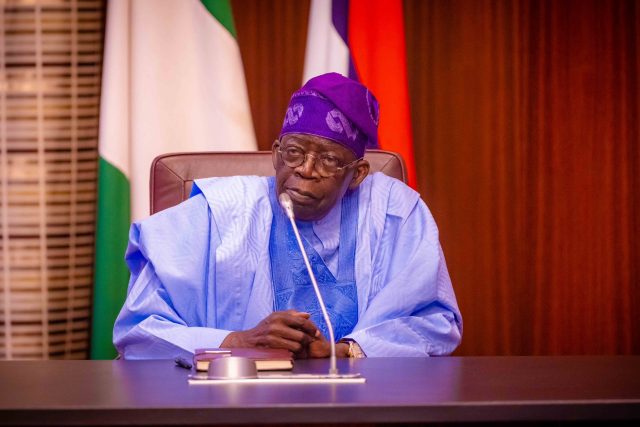
Late Afrobeat superstar, Fela Anikulapo-Kuti, in his early musical ensemble days as Africa ‘70, recalibrated a folklore that told the story of food shortage and hunger. The folklore, which Fela entitled Alujanjankijan brims with the motif of greed and its implications. The hunger folktale goes thus: Long time ago, a very severe famine hit the animal kingdom, leading to intense food crisis. As against the predictions of diviners called to seek the face of divinities for solution, hunger continued to ravage the land, so much that the kingdom’s silos were completely depleted. Lion, the king of the jungle and the monarch of the kingdom, called a meeting of all known animals. After all, don’t the elders say, though “eat” and “become” are rendered same way in Yoruba lingual representation, what to eat occupies a higher hierarchical ladder than what we want to become? (Ohun t’a o je l’agba ohun t’a o je). With hunger pelting their bellies, all the animals literally crawled to the central square. Lion, with his hitherto luxuriant but now withered mane, cleared his throat and spoke. There was no gainsaying that the food crisis in the kingdom would prove fatal, leading to animals dying in droves, he said. Except urgent and quick remedy was procured, Lion underscored the calamity ahead. A drastic action was agreed, to wit, every mother of each animal must be offered in martyrdom to ensure a continuation of the animal race. The agreed modus operandi was that each of those mothers must be brought to the square and mutually devoured, for the sustenance of the race.
Upon hearing this, rather than toe the difficult line of the collective effort to stem hunger in the kingdom, at nocturne, Dog selfishly went home and parceled his mother out of the kingdom. He loved his mother so well that he would rather die than offer her as meal for the survival of the hounds of the animal world. Dog thus fled to a very remote jungle and, perhaps in a conjuration, hid Mother Dog in the sky. Every other animal, including Tortoise the trickster, complied and their mothers were brought to the square, tethered and collectively devoured. So each day, Dog walked to a particular spot and conjured out his mother by singing a song which Fela made a melodious offering of. The song goes thus: “Mother, Mother, send down your rope/All have killed and eaten their own mothers/I, Dog, took my mother to the sky/Mother, Mother, send down your rope.” In its original Yoruba rendition, it goes thus: “Iya, Iya, ta’kun wa le o/Alu jan jan kijan/Gbogbo aye pa yeye re je/Alu jan jan kijan/ Aja gbe ti re o d’orun/Alu jan jan ki jan…”
After each orchestra-like musical rendition, Mother Dog looked down from the sky and magnanimously dropped a rope which Dog climbed to the sky. There, Dog was treated to a feast by his mother. He did this to the curiosity of other animals about his rotund look, until Tortoise the trickster came into the equation. He clandestinely trailed Dog and found out the secret. The next day, the trickster went to the spot and, perfectly mimicking the Dog, sang same song and a rope was lowered. As he climbed the rope, Dog appeared and, totally flummoxed, began to sing, tearfully, that his mother had listened to the voice of a scammer. Didn’t his mother recognize his voice again? Infuriated, Mother Dog cut the rope and Tortoise landed in a ghastly crash which turned his carapace into shell of fragments. Scarcely able to walk, he meandered into the home of a native orthopedic who salvaged the shells by gluing them together. This story, aside teaching morals, using their experience of the desperation of food crisis, became Yoruba’s own cosmological explanation of the tortoise’s fragmented shells.
Make no mistake about it: there is hunger in the land. A viral video last week depicting the Nigerian food crisis in its grim showed a tumult of unruly crowd queuing for N100 bread at Lagos Island being whacked with lacerating cudgels. Among other crises, Nigeria is facing a severe food crisis that is threatening lives and existence. Food stress itself is not a totally new phenomenon in the world. Each country and epoch devises different responses to their hungers. In the period between the 1950s and 1960s, India was thrown into a cauldron of food shortages, so severe that the country of Jawaharlal Nehru became known as a “begging-bowl” nation. The same happened in the pre-historic world that was often ravaged by famine. In each of these countries, responses were devised for the crises. Take the example of Pharaoh’s Egypt during its bitter plague of famine. It bought food from other lands which it stored in silos. Egypt even promoted the biblical Joseph as Prime Minister to manage the era of food shortage.
In 1816, the grueling Napoleon war brought in its wake an extremely cold, dark weather throughout northern Europe and northeastern United States. It was said to have been as a result of a super eruption from the Dutch East Indies city of Indonesia Mount Tambora which triggered global climate shifts. It manifested as smoke and ash that gushed into the atmosphere. The sun was completely covered. It got so severe that in July of that year, in Albany, New York, as well as in other cities in northern Europe, snow was recorded for the very first time. For farmers, the Mount Tabora eruption led to huge crop failures and famine throughout the northern hemisphere. It was so severe that 1816 got nicknamed the “year without a Summer” and the “Poverty Year.” When they couldn’t get bread to eat, people resorted to eating sawdust and straw. The result of the Indonesian eruption was famine, riots, disease outbreak, and mass death. Trust literature to take its full course, the great Romantic poet, Lord Byron, who was living in Geneva at the time of this near apocalypse, penned a poem out of that calamity which he entitled Darkness.Byron drew a picture of an “icy Earth” that is enveloped by desolation, burning cities, and global warfare.
The starvation and famine provoked by the Indonesian eruption was so huge that many German and Swiss residents fled to Russia and the Americas and Italians moved to cities. It led to the deaths of hundreds of thousands of people who were killed by the combined effects of starvation and exposure to typhus. By 1817, as we have in Nigeria today, food prices had increased astronomically and dramatically. As a response to this, governments had to make direct interventions in failed markets, with local governments coordinating food imports to feed starving people.
Africa also had its own share of food crisis. In the 1970s, the drought in the Sahel and Ethiopia drew global attention to the famine in the Horn of Africa countries of Djibouti, Eritrea and Somalia. The Ogaden war, similarly known as the Ethio-Somali war, was a military conflict fought between Somalia and Ethiopia which raged from July 1977 to March 1978 over the Ethiopian region of Ogaden, further worsened the famine. In Nigeria, the unsavoury civil war images of hunger and countrymen devouring lizards and toads for protein scared the world. From Ethiopia, skeletal images of hunger-ravaged Ethiopians surfaced, bespattering world television screens and littering pages of newspapers. As they sat comfortably to devour their dinners, the “unhealthy” images of children with distended stomachs, big heads and tiny legs on their television screens tampered with the appetites of world leaders. They had to do something urgent about it, if only to retain their appetites at dinner.
The current Nigerian food crisis is drilling down to the basest of the people’s agonies. Food and other goods’ inflation has soared to its highest figure ever. Hot protests are erupting like the scalding lava of volcanoes. The upward skyrocket in prices of staple foods is benumbing. The purchasing powers of the people have been stretched so thin that many families cannot afford to feed themselves. Cement price is said to have hit about N10,000 per bag while rice is nearing a hundred thousand Naira. Already, the spiking food prices with its rising inflation figure, are forcing Nigerians to troop to the streets in protests in Niger, Kano, Osun and Lagos States. Those who know the effect of this crisis are scared. The World Food Programme, (WFP) in its latest publication, is afraid that the crisis could have a globally consequential effect on the country’s over 220 million people, Nigeria being the most populated country in Africa and the sixth in the world. Before now, the about 84 million Nigerians, representing about 37 percent of the total population, who lived below the poverty line figure was worrisome to the WFP. Singling out conflict and insecurity, rising inflation and the impact of the climate crisis for the food stress in Nigeria, the WFP projected that the country’s 26.5 million people would face acute hunger in the June-August 2024 lean season. This is further worsened by the conflict in the North East which has succeeded in displacing 2.2 million people, leaving another 4.4 million food insecure in Borno, Adamawa and Yobe states.
Now, like the animal kingdom gathering, we are gathered to tame the monster of hunger. So, what are the responses from leaders of Nigeria? On his part, President Tinubu ordered the Federal Ministry of Agriculture to release maize, millet and gari of about 42,000 metric tonnes. He also met Nigerian governors at the Aso Rock Villa on Thursday where he sternly decreed that food importation was not an immediate panacea to the crisis. Tinubu also pleaded with the governors to deepen investments in the agricultural sector of crop production, livestock development and management to shore up food availability.
Northern Nigeria’s response to the food crisis has been to play the ostrich and effectively act the role of the Dog in time of famine. This it is doing by stylishly and selfishly ethnicizing the food crisis situation. The north’s stand is always predictably selfish, as if it is destined to go the way of the self, as against the collective. Reminds me of what my mother would say, of a man destined to go to bed hungry who, even if a bowl of pounded yam is kept on the rafter waiting for him, the rat would climb up to ruffle the bowl to tumble down.
The first selfish Dog was Niger State Governor, Mohammed Umar Bago. In the wake of the protest that rocked Minna a little over a week ago, Bago banned mass purchase of foods by traders from the southern parts of Nigeria from the state’s local markets. Emir of Kano, Alhaji Aminu Bayero, Like the Dog, also took north’s Mother Dog to the sky. While receiving Nigeria’s First Lady, Oluremi Tinubu, in his palace last week, Bayero urged her to relate the message to her husband, Bola Tinubu, that hunger, starvation, and insecurity plaguing the country had become urgent issues to address. Also, speaking through an interpreter, despite several analyses that have been made on the vacuity of the north northernizing the FCT, by condemning the Federal Government’s plan to relocate offices of the Federal Airports Authority of Nigeria and Central Bank of Nigeria from Abuja to Lagos, Bayero still doubled down on it.
Last Wednesday, at the 6th executive Northern Traditional Council committee meeting held at the Arewa House in Kaduna, Sultan of Sokoto, Muhammad Sa’ad Abubakar and his Northern Traditional Council, like the Alujanjankijan anecdote Dog, took the north’s Mother Dog to the sky. They warned that revolt of northern people looms if the rising poverty, hunger and insecurity in the country were not faced headlong.
There is no doubt that the current food prices are taking their toll on the people. They also tug at the here-and-now, peremptory policies of successive governments of Nigeria who seem to lack a natural endowment of good leaders – the vision to see tomorrow. Truth be said, there had been warning indicators that Nigeria would face severe food crisis. It didn’t begin today. None of the leaders gave heed to them. When Fulani herders were ravaging the food basket states of Benue, Plateau, Adamawa, Taraba, Kaduna, Yobe, Niger and Jigawa where rice, peppers, cassava, yams, plantains, pineapple, maize, beans, and palm oil were got from, what, for instance, did the government of Muhammadu Buhari do? How did they warn of revolt of other parts of Nigeria? Agreed that the problem became hydra-headed with the announcement by the Tinubu government of an end to fuel subsidy payments at inauguration in May, 2023, as well as the unification of exchange rate windows, we cannot play the ostrich as if we didn’t know that the food crisis of today began under Buhari when farmers, due to insecurity, could not go to the farms.
Feelers from across most of the states still producing foods, in spite of the rampaging insecurity, reveal that a coordinated attempt is being made to stop food going to the south. I imagine what would be the effect if southern states also order essential commodities from their states not to go northwards. What would be the effect, for instance, if petrol is not allowed to go to the north? While the totality of Nigeria is feeling the brunt of the food crisis, northern leaders’ wolf cries appear too self-serving and selfish for comfort. When their son, Buhari, was making Nigeria hell on earth for the rest of Nigeria, how much of those cries did we hear from the Emir of Kano and the Sultan? This subterranean attempt to southernize the Nigerian hunger by the north fits perfectly into a hackneyed pattern of blaming the rest of the country other than it for Nigeria’s crisis. If northern forefathers had tamed the malady of Patience Jonathan’s “Born trowey” children, otherwise known as the Almajiri syndrome, we most likely would not have the banditry system on which Nigeria has sunk trillions of Naira and which has cut short the lives of thousands of the people. In the same vein, if the Borno State-born Mohammed Yusuf’s Islamist group, Boko Haram, was not allowed to grow by selfsame northern elders, Nigeria may not be grappling today with a ravaging insecurity that is majorly responsible for the Nigerian food crisis. If the north is trying to curate an Arewa or Uthmania Republic, it should concisely state this so that we will know that we need visa to enter each other’s zones and shout “to your tents oh Nigeria!” Otherwise, we cannot have a country that puts a leash on intra-trade relations.
The way out of the Nigerian food crisis isn’t to sectionalize our ordeal. It cannot even be helped by a tokenist declaration of national emergency on agriculture by Tinubu. He has to put on the garment of a statesman at this critical time. As urgent as quick fixes in taming deaths from starvation are, government must put on its thinking cap by looking for long-term and sustainable solutions. One way is to face agriculture with unexampled vigour. This is the time for Tinubu to search the length and breadth of Nigeria for his own Adedunmola Hezekiah Oluwasanmi, a professor of agricultural economics from the then University of Ibadan reputed to have incubated Obafemi Awolowo’s highly applauded agricultural programme. Oluwasanmi must still have progenies of his agricultural sagacity scattered all over Nigeria. The Nigerian food crisis demands almost a Marshall Plan, a sound economic policy that will prioritize agriculture and not the tokenism of more than half a century of governance that we have had. Institutional reforms that will safeguard land tenure and raise farmers’ productivity, thus boosting food supplies and lowering prices to consumers are urgently needed. Its final aim will be ensuring good returns for agricultural investments. For instance, why not give Southwest governors incentives to return to cocoa farming which is witnessing remarkable boom and bloom in the world market today, encourage southeast palm-oil and north’s essential farm products?
It is not rocket science. India, already an object of mockery in the comity of nations due to its ravaging hunger in the 1960s, embarked on and successfully accomplished a journey to food self-sufficiency and agricultural development strategy. Today, India is a major exporter of foods. A good, forthright and determined leadership can achieve the Indian Midas touch for Nigeria. Rather than each Nigerian region clandestinely ferrying its mother out of harm’s way like the Dog as the north is doing at the moment, Nigeria must collectively look for remedy to this crisis.











